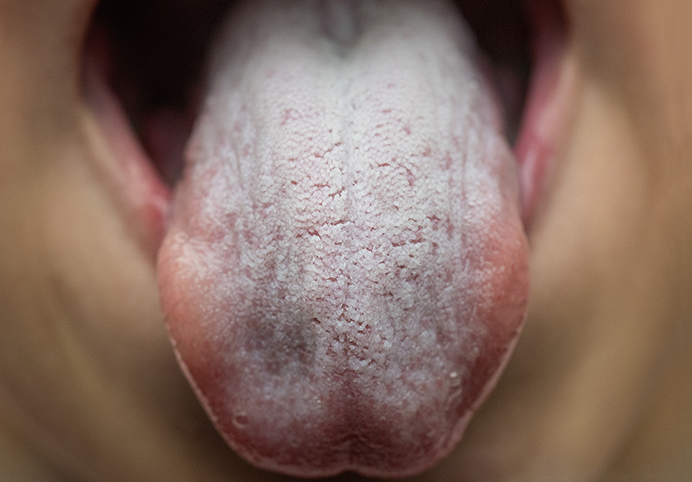Dry mouth is medically called xerostomia. It is a dental problem that occurs when the salivary glands can’t produce enough saliva to keep the mouth moist. In some cases, dry mouth results from ageing, radiation therapy, and certain medications. In rare cases, this condition may occur from issues directly affecting the salivary gland.
Insufficient saliva production can cause mild to severe issues that affect the overall health, teeth, gums, ability to enjoy food and appetite. The cause of dry mouth will determine its treatment, but our dental professional at Thousand Smiles will recommend the most suitable treatment for your case.


Your salivary gland may be unable to produce sufficient saliva for different reasons, such as:
Dry mouth is a common side effect of several over-the-counter and prescribed medications. These medications include antidepressants, drugs for high blood pressure, pain, anxiety, and antihistamines.
As you grow older, your mouth may become dry, and this may be aided by long-term illnesses, some medications, changes in the processing of medications and poor nutrition.

Radiation from cancer treatment can affect the salivary gland and reduce saliva production
Methamphetamine, marijuana and other recreational drugs can trigger dryness in the mouth
Dry mouth may occur if the nerves in the head and neck become damaged by an injury
Smoking, tobacco use and drinking may worsen the symptoms of dry mouth
Diabetes, stroke, autoimmune disease, Alzheimer’s disease and other conditions can cause dry mouth. Breathing with your mouth open and snoring can also cause dry mouth.
Dry mouth may cause the following

The dental professional will examine your mouth and review your medical history and all your medication to diagnose dry mouth. You may also need some diagnostic tests and scans of your salivary gland to diagnose the condition.
If your dry mouth results from Sjogren’s syndrome, you may need a biopsy to have your sample tested at the lab.
The treatment will depend on what causes your dry mouth.
If the dry mouth is severe, saliva-stimulating medications such as pilocarpine (Salogen) may be necessary, and tooth protection products such as chlorhexidine rinse and fluoride trays to prevent cavities.
The following tips can help prevent dry mouth
Ensure you avoid dry mouth stimulants such as:
How to protect your teeth
Preparing for your appointment
Doing the following before you see the dentist is advisable
You can ask the dentist the following questions
Your dentist may ask these questions
If you experience symptoms of dry mouth, visit Thousand Smiles today to have our dentist diagnose the cause of the condition and provide the right treatment. Feel free to call us on 020 8050 0280 to book an appointment.